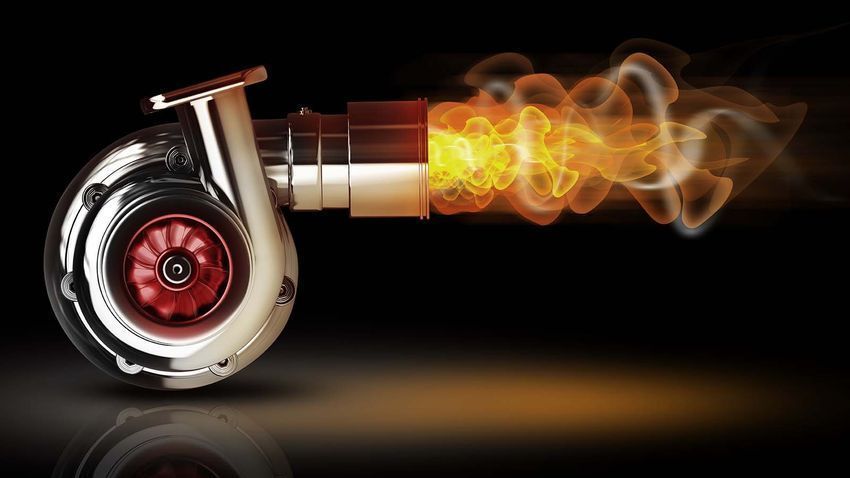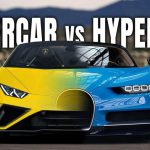Introduction: Powering Up Your Engine! ⚡
Ever wondered how some cars generate so much power without a massive engine? The secret lies in forced induction systems—Turbochargers and Superchargers. These devices force more air into the engine’s combustion chamber, allowing for a greater fuel burn, ultimately increasing power output. But how exactly do they work? Let’s dive into the fascinating science behind these power-boosting technologies! 🚀
Understanding Engine Performance: Air + Fuel = Power 🔥
In an internal combustion engine, power is produced by the combustion of fuel. However, the amount of power an engine generates is directly related to how much air and fuel it can burn efficiently. More air means more oxygen, which leads to a more powerful explosion inside the cylinders.
A naturally aspirated engine relies solely on atmospheric pressure to draw air into the engine, but turbochargers and superchargers “force” extra air into the system, significantly boosting horsepower.
Turbochargers: Harnessing Exhaust Gases for More Power 🔄🚗
How Turbochargers Work 🌀
A turbocharger is a small turbine-driven forced induction device that increases an engine’s efficiency and power by using exhaust gases. It consists of two main components:
- Turbine Side (Hot Side) 🔥 – Driven by exhaust gases from the engine.
- Compressor Side (Cold Side) ❄️ – Draws in and compresses fresh air before it enters the engine.
Step-by-Step Turbocharger Process
- The engine produces exhaust gases. 🚗💨
- These gases spin a turbine connected to a compressor. 🔄
- The compressor pulls in and compresses fresh air. 🌬️
- Compressed air enters the engine, allowing more fuel to be burned. 🔥
- The result? More power! 🚀
Turbocharger Pros ✅
✔ Increases power output without increasing engine size.
✔ Uses waste exhaust energy, improving efficiency.
✔ Better fuel economy compared to naturally aspirated engines.
Turbocharger Cons ❌
❌ Turbo lag – A delay in power delivery as the turbine spools up.
❌ Generates extra heat, requiring better cooling systems.
❌ More complex and expensive than naturally aspirated engines.
Superchargers: Instant Power at the Cost of Efficiency ⚙️💥
How Superchargers Work 🏎️
Unlike turbochargers, superchargers are mechanically driven by the engine itself. They are directly connected to the crankshaft via a belt, chain, or gear.
Types of Superchargers 🔧
- Roots-Type – Large, external, and provides an instant power boost. ⚙️
- Twin-Screw – More efficient than Roots-type, compresses air between screws. 🛠️
- Centrifugal – Similar to a turbo, but belt-driven instead of exhaust-driven. 🔄
Step-by-Step Supercharger Process
- The engine rotates a belt connected to the supercharger. ⚙️
- The supercharger compresses air and sends it into the engine. 💨
- More oxygen leads to a stronger combustion process. 🔥
- The result? Instant power boost! 🚀
Supercharger Pros ✅
✔ Instant power delivery with no lag.
✔ Simpler design, making it easier to install and maintain.
✔ Works efficiently at all RPM levels.
Supercharger Cons ❌
❌ Consumes engine power since it’s belt-driven.
❌ Less fuel-efficient than a turbocharger.
❌ Adds extra strain on the engine components.
Turbocharger vs. Supercharger: Which One is Better? ⚔️
| Feature | Turbocharger 🌀 | Supercharger ⚙️ |
|---|---|---|
| Power Delivery | Delayed (Turbo Lag) ⏳ | Instant ⚡ |
| Efficiency | More fuel-efficient ⛽ | Less efficient 🔥 |
| Complexity | More complex to install 🛠️ | Easier to install 🔧 |
| Cost | More expensive 💰 | Less expensive 💵 |
| Heat Generation | Generates more heat 🔥 | Less heat produced ❄️ |
| Usage | Common in smaller, efficient engines 🚗 | Preferred in muscle & performance cars 🏎️ |
🚗 For fuel economy and efficiency → Choose Turbocharger!
🏎️ For instant power and simplicity → Choose Supercharger!
Which One Should You Choose? 🤔
- If you want a balance of performance and fuel efficiency, go for a turbocharger.
- If you prioritize instant acceleration and simplicity, opt for a supercharger.
💡 Fun Fact: Many high-performance cars today use both turbochargers and superchargers (Twin-Charging) for maximum power delivery! 🚀🔥
Conclusion: The Future of Forced Induction 🌍
Turbochargers and superchargers have revolutionized the automotive industry, providing more power without increasing engine size. With advancements in hybrid technology and electric cars, we may see electric superchargers and turbo-electric systems making performance cars even more efficient! 🚘⚡


